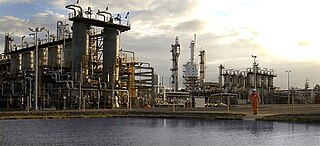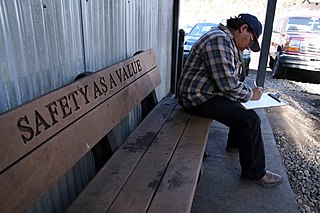
Chemical engineering is an engineering field which deals with the study of operation and design of chemical plants as well as methods of improving production. Chemical engineers develop economical commercial processes to convert raw materials into useful products. Chemical engineering uses principles of chemistry, physics, mathematics, biology, and economics to efficiently use, produce, design, transport and transform energy and materials. The work of chemical engineers can range from the utilization of nanotechnology and nanomaterials in the laboratory to large-scale industrial processes that convert chemicals, raw materials, living cells, microorganisms, and energy into useful forms and products. Chemical engineers are involved in many aspects of plant design and operation, including safety and hazard assessments, process design and analysis, modeling, control engineering, chemical reaction engineering, nuclear engineering, biological engineering, construction specification, and operating instructions.

Safety is the state of being "safe", the condition of being protected from harm or other danger. Safety can also refer to the control of recognized hazards in order to achieve an acceptable level of risk.

A chemical engineer is a professional equipped with the knowledge of chemistry and other basic sciences who works principally in the chemical industry to convert basic raw materials into a variety of products and deals with the design and operation of plants and equipment. This person applies the principles of chemical engineering in any of its various practical applications, such as
- Design, manufacture, and operation of plants and machinery in industrial chemical and related processes ;
- Development of new or adapted substances for products ranging from foods and beverages to cosmetics to cleaners to pharmaceutical ingredients, among many other products ;
- Development of new technologies such as fuel cells, hydrogen power and nanotechnology, as well as working in fields wholly or partially derived from chemical engineering such as materials science, polymer engineering, and biomedical engineering. This can include working of geophysical projects such as rivers, stones, and signs.
Safety engineers focus on development and maintenance of the integrated management system. They act as a quality assurance and conformance specialist.

The Texas City refinery explosion occurred on March 23, 2005, when a flammable hydrocarbon vapor cloud ignited and violently exploded at the isomerization process unit of the BP oil refinery in Texas City, Texas, killing 15 workers, injuring 180 others and severely damaging the refinery. All the fatalities were contractors working out of temporary buildings located close to the unit to support turnaround activities. Property loss was $200 million. When including settlements, costs of repairs, deferred production, and fines, the explosion is the world's costliest refinery accident.

On 25 September 1998 a catastrophic accident occurred at the Esso natural gas plant in Longford, Victoria, Australia. A pressure vessel ruptured resulting in a serious jet fire, which escalated to a conflagration extending to a large part of the plant. Fires lasted two days before they were finally extinguished.

Safety culture is the collection of the beliefs, perceptions and values that employees share in relation to risks within an organization, such as a workplace or community. Safety culture is a part of organizational culture, and has been described in a variety of ways, notably the National Academies of Science and the Association of Land Grant and Public Universities have published summaries on this topic in 2014 and 2016.
The American Institute of Chemical Engineers (AIChE) is a professional organization for chemical engineers. AIChE was established in 1908 to distinguish chemical engineers as professionals independent of chemists and mechanical engineers.
In the chemical and process industries, a process has inherent safety if it has a low level of danger even if things go wrong. Inherent safety contrasts with other processes where a high degree of hazard is controlled by protective systems. As perfect safety cannot be achieved, common practice is to talk about inherently safer design. “An inherently safer design is one that avoids hazards instead of controlling them, particularly by reducing the amount of hazardous material and the number of hazardous operations in the plant.”
Trevor Asher Kletz, OBE, FREng, FRSC, FIChemE was a prolific British author on the topic of chemical engineering safety. He was a central figure in establishing the discipline of process safety. He is credited with introducing the concept of inherent safety and was a major promoter of Hazop. He is listed in The Palgrave Dictionary of Anglo-Jewish History.
A hazard and operability study (HAZOP) is a structured and systematic examination of a complex system, usually a process facility, in order to identify hazards to personnel, equipment or the environment, as well as operability problems that could affect operations efficiency. It is the foremost hazard identification tool in the domain of process safety. The intention of performing a HAZOP is to review the design to pick up design and engineering issues that may otherwise not have been found. The technique is based on breaking the overall complex design of the process into a number of simpler sections called nodes which are then individually reviewed. It is carried out by a suitably experienced multi-disciplinary team during a series of meetings. The HAZOP technique is qualitative and aims to stimulate the imagination of participants to identify potential hazards and operability problems. Structure and direction are given to the review process by applying standardized guideword prompts to the review of each node. A relevant IEC standard calls for team members to display 'intuition and good judgement' and for the meetings to be held in "an atmosphere of critical thinking in a frank and open atmosphere [sic]."

The Institution of Chemical Engineers (IChemE) is a global professional engineering institution with 30,000 members in 114 countries. It was founded in 1922 and awarded a Royal Charter in 1957.
Process safety is an interdisciplinary engineering domain focusing on the study, prevention, and management of large-scale fires, explosions and chemical accidents in process plants or other facilities dealing with hazardous materials, such as refineries and oil and gas production installations. Thus, process safety is generally concerned with the prevention of, control of, mitigation of and recovery from unintentional hazardous materials releases that can have a serious effect to people, plant and/or the environment.
Francis Pearson Lees, usually known as Frank Lees, was a chemical engineer and a professor at Loughborough University who is noted for his contribution to the field of industrial safety.
Prevention through design (PtD), also called safety by design usually in Europe, is the concept of applying methods to minimize occupational hazards early in the design process, with an emphasis on optimizing employee health and safety throughout the life cycle of materials and processes. It is a concept and movement that encourages construction or product designers to "design out" health and safety risks during design development. The process also encourages the various stakeholders within a construction project to be collaborative and share the responsibilities of workers' safety evenly. The concept supports the view that along with quality, programme and cost; safety is determined during the design stage. It increases the cost-effectiveness of enhancements to occupational safety and health.
Science & Technology Australia (STA), formerly known as the Federation of Australian Scientific and Technological Societies (FASTS), is an organisation representing the interests of more than 90,000 Australian scientists and technologists, and promoting their views on a wide range of policy issues to the Australian Government, Australian industry, and the Australian community.
Sir Edward John Cullen FEng PhD DSc was a British chemical engineer who was head of the UK Health and Safety Commission and received a knighthood for services to health and safety.
Judy Agnes Raper is an Australian chemical engineer and was previously Deputy Vice-Chancellor for Research and Innovation at the University of Wollongong. She has served as a National Science Foundation Director and led the Atomic Energy Research Establishment. She has been Dean & CEO of TEDI-London, a new engineering higher education provider since its incorporation in June, 2019.
Marlene Kanga is an engineer, entrepreneur, and diversity activist, who was awarded Queens Birthday honours in 2022. She was appointed an officer of the Order of Australia for her substantial service to Engineering, particularly as a global leader and role model to women to professional organisations, and to business.

Vinayak Pai is the Managing Director and Chief Executive Officer (CEO) of Tata Projects, an engineering, procurement, and construction company under the Tata Group.






